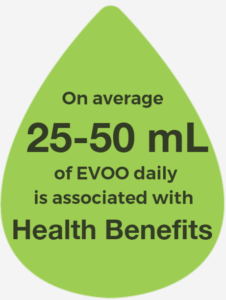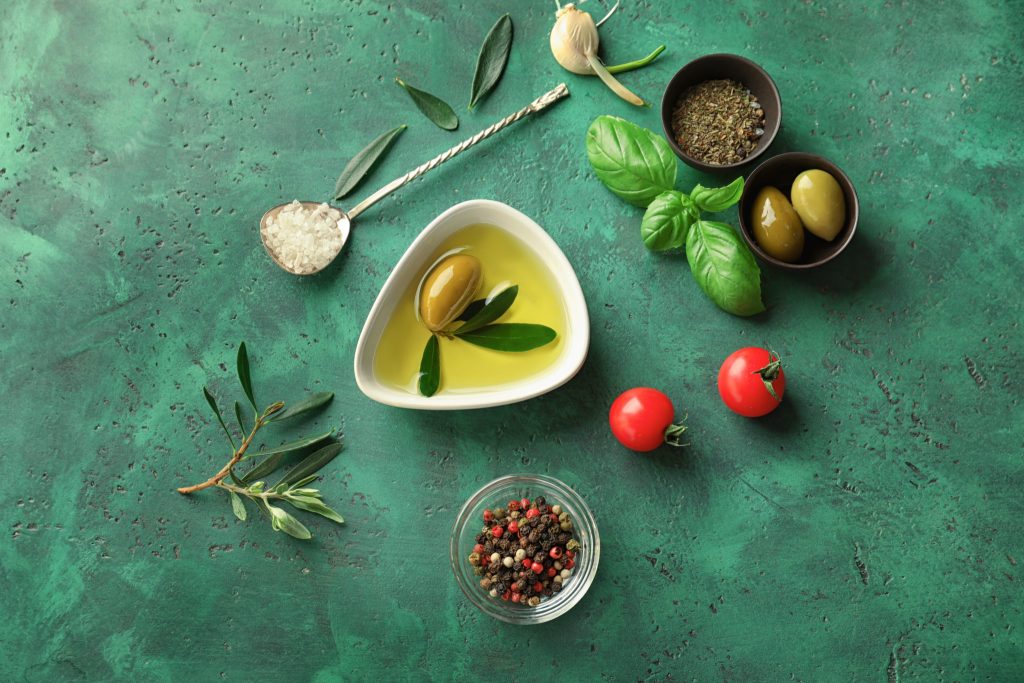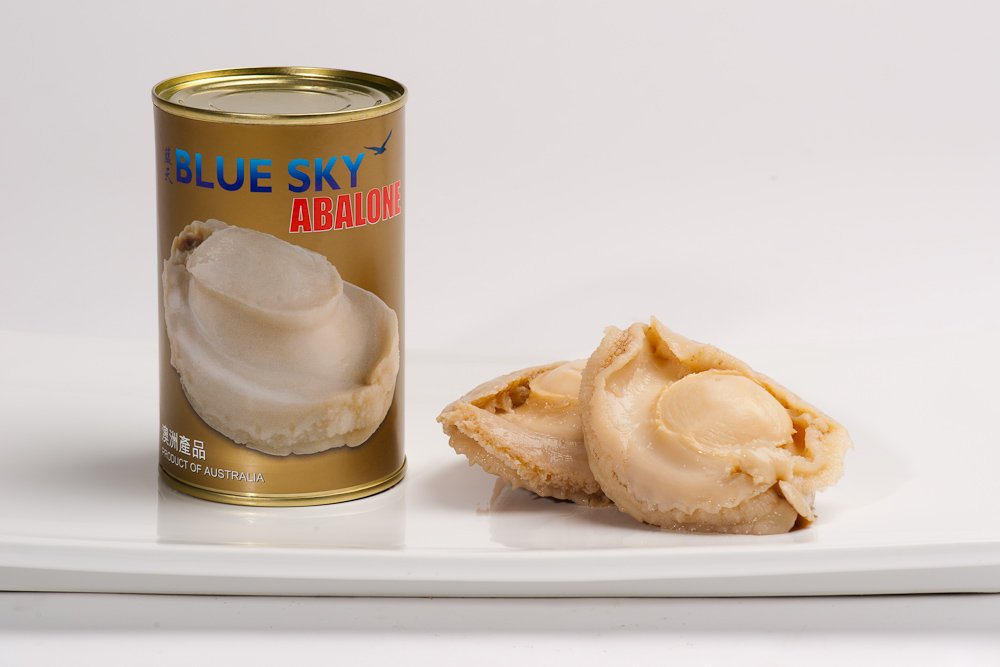Chưa có sản phẩm trong giỏ hàng.
Góc sức khỏe, Tin tức
Bằng chứng về lợi ích sức khỏe của dầu ô liu Extra Virgin
Có rất nhiều lợi ích sức khỏe đã được chứng minh rõ ràng liên quan đến Dầu ô liu Extra Virgin:
- Ngăn ngừa tử vong nói chung
- Phòng ngừa bệnh tim mạch, bệnh mạch vành và nhồi máu cơ tim
- Phòng ngừa bệnh tiểu đường hoặc cải thiện kiểm soát đường huyết ở bệnh nhân đái tháo đường týp 2 hiện có
- Giảm tỷ lệ mắc ung thư nói chung
- Phòng ngừa các bệnh thoái hóa thần kinh
- Phòng ngừa rối loạn tâm thần
- Đẩy lùi bệnh gan nhiễm mỡ
- Phòng Chống Thừa Cân Béo Phì

Ô liu thường và dầu ô liu Extra Virgin là nguồn chính cung cấp chất béo lành mạnh, bổ sung các hợp chất hoạt tính sinh học mạnh mẽ, và là trọng tâm của Chế độ ăn Địa Trung Hải. Ngày càng có nhiều bằng chứng mô tả vai trò độc đáo và mạnh mẽ của Dầu ô liu Extra Virgin ở trung tâm nhiều biến thể của Chế độ ăn Địa Trung Hải. Ở đó, dầu ô liu Extra Virgin là một yếu tố quyết định quan trọng của chế độ ăn nhiều rau, làm cho chế độ ăn chủ yếu là thực vật trở nên thú vị và bền vững hơn bao giờ hết.
Chế độ ăn kiêng kiểu Địa Trung Hải hiện được các chính phủ, nhà khoa học và chuyên gia y tế khuyến nghị như một ví dụ về tiêu chuẩn vàng dinh dưỡng với nhiều bằng chứng hỗ trợ những tác động có lợi rất đáng kể đối với sức khỏe và thể chất.
Chế độ ăn Địa Trung Hải là một khuyến nghị dinh dưỡng dựa trên mô hình ăn kiêng truyền thống của Nam Âu. Chế độ ăn kiêng này được đặc trưng bởi việc tiêu thụ nhiều Dầu ô liu Extra Virgin, các loại đậu, ngũ cốc chưa chế biến kỹ, trái cây và rau quả; tiêu thụ cá và các sản phẩm từ sữa ở mức trung bình đến cao; và tiêu thụ ít các loại thịt không phải từ cá. Đến năm 2013, UNESCO đã liệt kê chế độ ăn Địa Trung Hải là một phần di sản văn hóa phi vật thể của toàn nhân loại.
Nhiều nghiên cứu cho thấy rằng tiêu thụ từ 25 đến 50 mL Dầu Ô liu Extra Virgin mỗi ngày có liên quan mật thiết đến lợi ích sức khỏe, đặc biệt là sức khỏe tim mạch (ví dụ: cholesterol và huyết áp).[1-18]
Bằng chứng cho thấy những người áp dụng chế độ ăn kiểu Địa Trung Hải được hưởng nhiều lợi ích sức khỏe khác nhau.
Dưới đây là bảng dẫn chứng từ các công bố khoa học về: Chế độ ăn uống Địa Trung Hải, Dầu ô liu Extra Virgin và bệnh mãn tính.
| Tác dụng | Chi tiết |
| Ngăn ngừa tử vong nói chung | -Giảm tỷ lệ tử vong chung [19-21] -Giảm tỷ lệ tử vong do bệnh tim mạch (CVD) [19-21] -Giảm tỷ lệ tử vong do ung thư [19-21] |
| Phòng ngừa bệnh tim mạch, bệnh mạch vành và nhồi máu cơ tim | Giảm nguy cơ mắc bệnh tim mạch (CVD) nguyên phát và thứ phát thông qua việc giảm các yếu tố rủi ro liên quan như:
Giảm viêm:
|
| Phòng ngừa bệnh tiểu đường hoặc cải thiện kiểm soát đường huyết ở bệnh nhân đái tháo đường týp 2 hiện có |
|
| Giảm tỷ lệ mắc ung thư nói chung |
|
| Phòng ngừa các bệnh thoái hóa thần kinh | Cải thiện chức năng nhận thức ở những người tham gia thử nghiệm khỏe mạnh về mặt nhận thức và giảm 13% tỷ lệ mắc bệnh Parkinson và Alzheimer [45] |
| Phòng ngừa rối loạn tâm trạng | Giảm mức độ nghiêm trọng của bệnh trầm cảm ở những người đang mắc bệnh trầm cảm [46-47] |
| Đẩy lùi bệnh gan nhiễm mỡ | Giảm gan nhiễm mỡ và cải thiện độ nhạy insulin ở người kháng insulin ở những người mắc bệnh gan nhiễm mỡ không do rượu, không phụ thuộc vào giảm cân [48] |
| Phòng Chống Thừa Cân Béo Phì | Mối quan hệ tích cực giữa việc tuân thủ Chế độ ăn Địa Trung Hải và kiểm soát cân nặng/BMI [49-62] |
Trung tâm Ô liu ÚC Davis đã chuẩn bị hai báo cáo liên quan đến Dầu ô liu đối với sức khỏe, liên quan đến mỡ máu và huyết áp. [31, 34]
“Trung tâm ô liu UC Davis là một liên minh công nghiệp/trường đại học tự tài trợ nhằm tìm cách làm cho ô liu những gì như UC Davis đã làm cho rượu vang. Trung tâm nổi tiếng thế giới tập hợp gần 60 giảng viên UC, chuyên gia nghiên cứu và cố vấn trang trại, những nhà nghiên cứu và giáo dục của những người trồng và chế biến ô liu ở California. Trung tâm cũng hợp tác với các tổ chức trên toàn thế giới.”
Những báo cáo này có thể được truy cập dưới đây:
http://olivecenter.ucdavis.edu/publications/olive-oil-as-medicine
http://olivecenter.ucdavis.edu/research/files/blood-lipid_updated
Nguyễn Tiến Dũng dịch
Nguồn: Health Benefits of Extra Virgin Olive Oil | Olive Wellness Institute
Các bài báo khoa học được tham khảo trong bài viết:
- Fernandez-Avila C, Montes R, Castellote A, et al. Fast determination of virgin olive oil phenolic metabolites in human high-density lipoproteins. Biomed Chromatogr. 2015;29:1035-41.
- Rubio L, Vallis R, Macia A, et al. Impact of olive oil phenolic concentration on human plasmatic phenolic metabolites. Food Chem. 2012;135(4):2922-9.
- Owen RW, Mier W, Giacosa A, et al. Phenolic compounds and squalene in olive oils: the concentration and antioxidant potential of total phenols, simple phenols, secoiridoids, lignans and squalene. Food Chem Toxicol 2000;38:647-659.
- Gray S. Cooking with extra virgin olive oil. Journal of Australasian College of Nutritional and Environmental Medicine. 2015;34(8-12).
- Waterman E, Lockwood B. Active components and clinical applications of olive oil. Altern Med Rev. 2007;12(4):331-42.
- Castañer O, Fitó M, López-Sabater MC, et al. The effect of olive oil polyphenols on antibodies against oxidized LDL. A randomized clinical trial. Clinical nutrition 2011; 30: 490-493.
- Hernaez A, Fernandez-Castillejo S, Ferries M et al. Olive oil biophenols enhance high-density lipoprotein function in humans: a randomized controlled trial. Arteriosclerosis, Thrombosis, and Vascular Biology Journal of the American Heart Association. 2014;34:2115–9.
- Dinu M, Pagliai G, Casini A et al. Mediterranean diet and multiple health outcomes: an umbrella review of meta-analyses of observational studies and randomised trials. Eur J Clin Nutr. 2017;27(1):doi:10.1038/ejcn.2017.58.
- Widmer R, Flammer A, Lerman L et al. The Mediterranean diet, it’s components, and cardiovascular disease. Am J Med. 2015;128(3):229–38.
- Estruch R, Ros E, Sala-Salvao J, et al. Primary prevention of cardiovascular disease with a Mediterranean diet supplemented with Extra Virgin Olive Oil or Nuts. N Engl J Med. 2018;378(25):e34(1-14).
- Moreno-Luna R, Munoz-Hernandez R, Miranda ML, et al. Olive oil polyphenols decrease blood pressure and improve endothelial function in young women with mild hypertension. Am J Hypertens. 2012;25:1299–304.
- Schwingshackl L, Hoffmann G. Monounsaturated fatty acids, olive oil and health status: a systematic review and meta-analysis of cohort studies. Lipids Health Dis. 2014;13:154.
- Hernaez A, Remaley AT, Farras M, Fernandez-Castillejo S, Subirana I, Schroder H, et al. Olive Oil Polyphenols Decrease LDL Concentrations and LDL Atherogenicity in Men in a Randomized Controlled Trial. J Nutr. 2015;145(8):1692-7.
- FDA Qualified Health Claims, Evidence from International Regulator FDA https://www.fda.gov/food/labelingnutrition/ucm073992.htm#cardio
- European Food Safety Authority – Scientific Opinion on the substantiation of health claims related to olive oil and maintenance of normal blood LDL-cholesterol concentrations (ID 1316, 1332), maintenance of normal (fasting) blood concentrations of triglycerides (ID 1316, 1332), maintenance of normal blood HDL-cholesterol concentrations (ID 1316, 1332) and maintenance of normal blood glucose concentrations (ID 4244) pursuant to Article 13(1) of Regulation (EC) No 1924/20061
- Castañer O, Covas M-I, Khymenets O, et al. Protection of LDL from oxidation by olive oil polyphenols is associated with a downregulation of CD40-ligand expression and its downstream products in vivo in humans. The American journal of clinical nutrition 2012; 95: 1238-1244.
- Damasceno N, Pérez-Heras A, Serra M, et al. Crossover study of diets enriched with virgin olive oil, walnuts or almonds. Effects on lipids and other cardiovascular risk markers. Nutrition, Metabolism and Cardiovascular Diseases 2011; 21: S14-S20
- Violante B, Gerbaudo L, Borretta G, et al. Effects of extra virgin olive oil supplementation at two different low doses on lipid profile in mild hypercholesterolemic subjects: a randomised clinical trial. J Endocrinol Invest. 2009;32:794-6.
- Dinu M, Pagliai G, Casini A et al. Mediterranean diet and multiple health outcomes: an umbrella review of meta-analyses of observational studies and randomised trials. Eur J Clin Nutr. 2017;27(1):doi:10.1038/ejcn.2017.58.
- Sofi F, Cesari F, Abbate R, Gensini G, et al. Adherence to Mediterranean diet and health status: meta-analysis. BMJ. 2008;337: org/10.1136/bmj.a1344.
- Sofi F, Abbate R, Gensini G et al. Accruing evidence on benefits of adherence to the Mediterranean diet on health: an updated systematic review and meta-analysis. Am J Clin Nutr. 2010;92(5):1189–96.
- Widmer R, Flammer A, Lerman L et al. The Mediterranean diet, it’s components, and cardiovascular disease. Am J Med. 2015;128(3):229–38.
- Estruch R, Ros E, Sala-Salvao J, et al. Primary prevention of cardiovascular disease with a Mediterranean diet supplemented with Extra Virgin Olive Oil or Nuts. N Engl J Med. 2018;378(25):e34(1-14).
- Tresserra-Rimbau A, Rimm E, Medina-Ramon A et al. Polyphenol intake and mortality risk: a re-analysis of the PREDIMED trial. BMC Med. 2014;12: doi: 1186/1741-7015-12-77.
- Dontas A, Zerefos N, Panagiotakos D et al. Mediterranean diet and prevention of coronary heart disease in the elderly. Clin Interv Aging. 2007;2(1):109– 16.
- Fito M, Cladellas M, de la Torre R, et al. Antioxidant effect of virgin olive oil in patients with stable coronary heart disease: a randomized, crossover, controlled, clinical trial. Atherosclerosis. 2005;181:149–58.
- Moreno-Luna R, Munoz-Hernandez R, Miranda ML, et al. Olive oil polyphenols decrease blood pressure and improve endothelial function in young women with mild hypertension. Am J Hypertens. 2012;25:1299–304.
- Widmer R, Freund M, Flammer A et al. Beneficial effects of polyphenol-rich olive oil in patients with early atherosclerosis. Eur J Nutr. 2013;52:1223–31.
- Ferrara L, Raimondi A, d’Episcopo L, et al. Olive oil and reduced need for antihypertensive medications. Arch Intern Med. 2000;160:837–42.
- Perona J, Canizares J, Montero E, et al. Virgin olive oil reduces blood pressure in hypertensive elderly subjects. Clin Nutr. 2004;23:1113–21.
- UC Davis Olive Centre. Olive oil as medicine: the effect on blood pressure. UC Davis.
At: http://olivecenter.ucdavis.edu/publications/olive-oil-as-medicine - Hernaez A, Fernandez-Castillejo S, Ferries M et al. Olive oil biophenols enhance high-density lipoprotein function in humans: a randomized controlled trial. Arteriosclerosis, Thrombosis, and Vascular Biology Journal of the American Heart Association. 2014;34:2115–9.
- Covas M, Nyyssonen K, Poulsen H, et al. The effect of biophenols in olive oil on heart disease risk factors: a randomized trial. Ann Intern Med. 2006;145:333– 41.
- UC Davis Olive Centre. Olive oil as medicine: the effect on blood lipids and lipoproteins.
At: http://olivecenter.ucdavis.edu/research/files/blood-lipid_updated - Aguilera C, Mesa M, Ramirez-Tortosa, et al. Sunflower oil does not protect against LDL oxidation as virgin olive oil does in patients with peripheral vascular disease. Clin Nutr. 2004;23:673–81.
- Lasa A, Miranda J, Bullo M, et al. Comparative effect of two Mediterranean diets versus a low-fat diet on glycaemic control in individuals with type 2 diabetes. Eur J Clin Nutr. 2014;68:762–72.
- Salas-Salvado J, Bullo M, Estruch R et al. Prevention of diabetes with Mediterranean diets: a subgroup analysis of a randomized control trial. Ann Intern Med. 2014;160(1):1–10.
- Salas-Salvado J, Bullo M, Babio, N et al. Reduction in the incidence of type 2 diabetes with the Mediterranean diet: results of the PREDIMED-Reus nutrition intervention randomized trial. Diabetes Care. 2011;34(1):14–9.
- Itsiopoulos C, Brazionis L, Kaimakamis M, et al. Can the Mediterranean diet lower HbA1c in type 2 diabetes? Results from a randomized cross-over study. Nutr Metab Cardiovasc Dis. 2011;21(9):740–7.
- Ajala O, English P, Pinkey J. Systematic review and meta-analysis of different dietary approaches to the management of type 2 diabetes. Am J Clin Nutr. 2013;97(3):505– 16.
- Ryan M, McInerney D, Owens D, et al. Diabetes and the Mediterranean diet: a beneficial effect of oleic acid on insulin sensitivity, adipocyte glucose transport and endothelium-dependent vasoreactivity. QJM. 2000;93:85–91.
- Violi F, Loffredo L, Pignatelli P et al. Extra virgin olive oil is associated with improved post-prandial blood glucose and LDL cholesterol in healthy subjects. Nutr Diabetes. 2015;5:doi: 10.1038/nutd.2015.23.
- Farnetti S, Malandrino N, Luciani D, et al. Food fried in extra-virgin olive oil improves postprandial insulin response in obese, insulin-resistant women. J Med Food. 2011;14:316–21.
- Escrich E, Moral R, Grau L, et al. Molecular mechanisms of the effects of olive oil and other dietary lipids on cancer. Mol Nutr Food Res. 2007;51:1279–92.
- Valls-Pedret C, Sala-Vila A, Serra-Mir A, et al. Mediterranean diet and age-related cognitive decline: a randomized clinical trial. JAMA Intern Med. 2015;175(7):1084–1103.
- Jacka F, O’Neil A, Opie R, et al. A randomised controlled trial of dietary improvement for adults with major depression (the ‘SMILES’ trial). BMC Med. 2017; 15(1):23.
- Opie R, O’Neil A, Jacka F, et al. A modified Mediterranean intervention for adults with major depression: dietary protocol and feasibility data from the SMILES trial. Nutr Neurosci. 2017;19:1–15.
- Ryan M, Itsiopoulos C, Thodis T, et al. The Mediterranean diet improves hepatic steatosis and insulin sensitivity in individuals with non-alcoholic fatty liver disease. J Hepatol. 2013;59(1):138–43.
- Schroder H, Marrugat J, Vila J, et al. Adherence to the traditional Mediterranean diet is inversely associated with body mass index and obesity in a Spanish population. J Nutr. 2004;134:3355–61.
- Panagiotakos DB, Chrysohoou C, Piassavas C, et al. Association between the prevalence of obesity and adherence to the Mediterranean diet: the ATTICA study. Nutr. 2006;22:449–56.
- Shai I, Schwarzfuchs D, Henkin Y, et al. Weight loss with a low-carbohydrate, Mediterranean, or low-fat diet. New Eng J Med. 2008;359:229–41.
- Trichopoulou, A. Naska A, Orfanos P, et al. Mediterranean diet in relation to body mass index and waist-to-hip ratio: the Greek European prospective investigation into cancer and nutrition study. Am J Clin Nutr. 2015;82(5): 935–40.
- Sánchez-Villegas A, Bes-Rastrollo M, Martinez-Gonzalez M, et al. Adherence to a Mediterranean dietary pattern and weight gain in a follow-up study: the SUN cohort. Int J Obes. 2005;30(2):350–8.
- Flynn MM, Reinert SE. Comparing an olive oil-enriched diet to a standard lower-fat diet for weight loss in breast cancer survivors: a pilot study. J Womens Health. 2010;19:1155–61.
- Bes-Rastrollo M, Sanchez-Villegas A, de la Fuente C, et al. Olive oil consumption and weight change: the SUN prospective cohort study. Lipids. 2006;41:249–56.
- Soriguer F, Rojo-Martínez G, Goday A et al. Olive oil has a beneficial effect on impaired glucose regulation and other cardiometabolic risk factors. Di@bet.es study. Eur J Clin Nutr. 2013;67:911–6.
- Soriguer F, Almaraz m, et al. Incidence of obesity is lower in persons who consume olive oil. Eur J Clin Nutr. 2009;63(11):1371–4.
- Mennella I, Savarese M, Ferracane R et al. Oleic acid content of a meal promotes oleoylethanolamide response and reduces subsequent energy intake in human. Food Funct. 2015;6(1):204–10.
- Haro-Mora, J, Garcia-Escobar E, Alcazar P, et al. Children whose diet contained olive oil had a lower likelihood of increasing their body mass index Z-score over 1 year. Eur J Endocrinol. 2011;165(3):435–9.
- Perez-Martinez P, Garcia-Rios A, Degaldo-Lista J, et al. Mediterranean diet rich in olive oil and obesity, metabolic syndrome and diabetes mellitus. Curr Pharm Des. 2011;17(8):769–77.
- Razquin C, Marinez J, Martinez-Gonzalez M, et al. A 3 years follow-up of a Mediterranean diet rich in virgin olive oil is associated with high plasma antioxidant capacity and reduced body weight gain. Eur J Clin Nutr. 2009;63(12):1387–93.
- Romaguera D, Norat T, Mouw N, et al. Adherence to the Mediterranean diet is associated with lower abdominal adiposity in European men and women. J Nutr. 2009;139(9): 1728–37.


